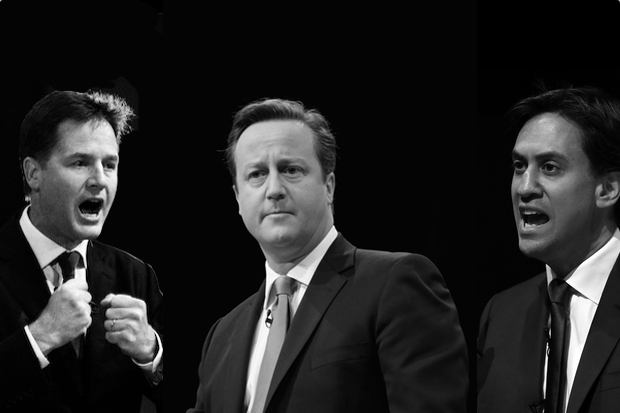Reshuffles are meant to demonstrate the power of a leader, to show that they are in command of their party. But what Ed Miliband, David Cameron and Nick Clegg all revealed this week was not their strengths but their fears.
It was clear that Ed Miliband’s great worry is that in 2015 Labour will look like it is offering a replay of its last stint in government. In policy terms, his answer has been to make clear where he wants to break with the New Labour consensus. First, there were his frequent acts of contrition on immigration, then his conference pledge to freeze energy prices, by law, if elected. In personnel terms, his solution has been to promote a slew of MPs from the 2010 intake. The defining theme of Labour’s reshuffle wasn’t Blairites versus Brownites but the preferment of the new guard: newly elected MPs now make up more than 30 per cent of the shadow cabinet. Tristram Hunt, a protégé of Peter Mandelson’s, can flourish in Miliband’s Labour party because he is a fresh face. One suspects that if he had been in the last government, he wouldn’t be doing so well now.
These new MPs in the shadow cabinet will be sent out to speak for the party at every opportunity. Expect to see the former GMTV presenter Gloria de Piero on television almost as much as she was in her old job. With Hunt at education, Rachel Reeves at work and pensions and Chuka Umunna at Business, the second tier of the shadow cabinet is now dominated by those who weren’t present for the divisions of the Blair/Brown years. But these promotions can’t solve the fundamental problem right at the top of the party: as long as Miliband is leader and, more pertinently, Ed Balls is shadow chancellor, Labour will look like a return to the past.








Comments
Join the debate for just £1 a month
Be part of the conversation with other Spectator readers by getting your first three months for £3.
UNLOCK ACCESS Just £1 a monthAlready a subscriber? Log in